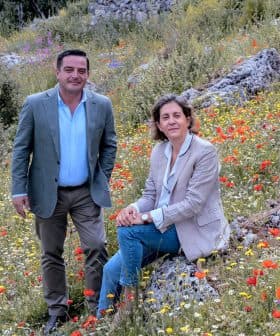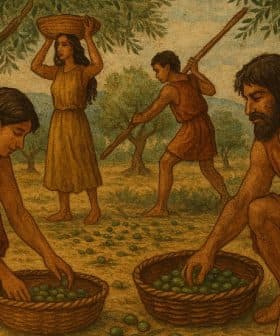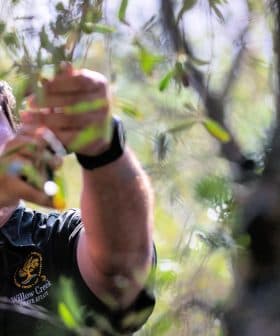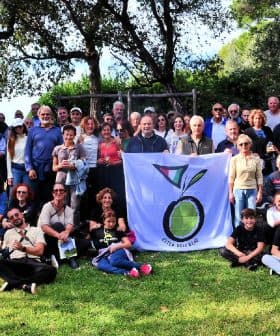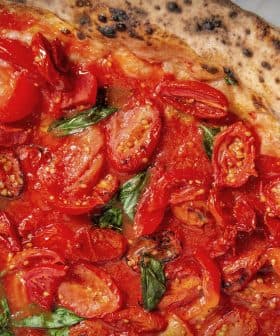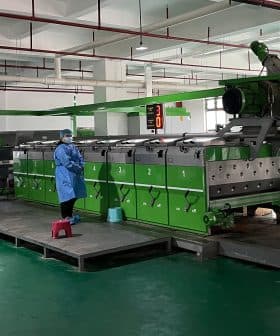Bringing Award-Winning Spanish Olive Oils to Ireland
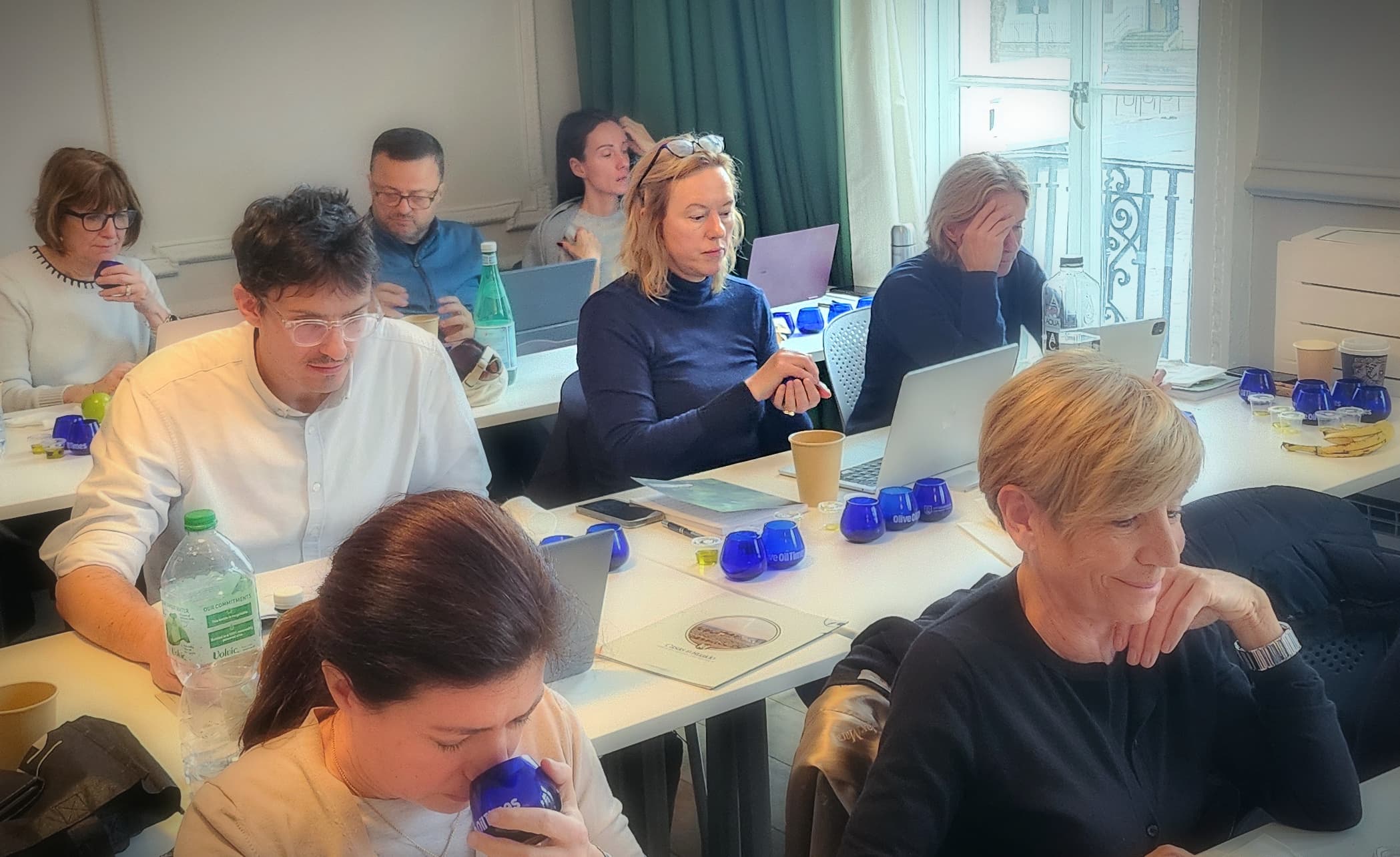
Sarah Merrigan is the founder of Sarah & Olive, a Dublin-based company that imports and distributes award-winning extra virgin olive oil from Spain. Merrigan’s background as a chef and sustainable food entrepreneur led her to appreciate high-quality olive oil, and she now focuses on sourcing early-harvest oils from producers who practice organic and biodynamic farming for both sustainability and quality.
Sarah Merrigan is the founder of Sarah & Olive, a Dublin-based company specializing in importing and distributing award-winning extra virgin olive oil from Spain.
“With Sarah & Olive, I’m on a mission to showcase the finest extra virgin olive oils produced in Spain, and because Spain is the world’s biggest producer, this means we’re talking about some of the finest extra virgin olive oils in the world,” Merrigan told Olive Oil Times.
With a background as a chef, food writer and sustainable food entrepreneur, Merrigan’s journey in the culinary world includes years spent working in Barcelona, where she developed a deep appreciation for high-quality olive oil.
Because Ireland doesn’t have a native olive oil culture, I feel it’s important to educate people so that they can make informed choices when buying an olive oil rather than be guided by price or label.
“Barcelona is where I first saw how extra virgin olive oil is a real game changer in the kitchen,” she said. “I was a strict vegetarian in those days, so nutrition as well as flavor was very important to how I cooked and thought about food.”
Merrigan noticed that while food changed with the seasons in the Mediterranean, olive oil was always a constant.
“At that time in Ireland, sauces tended to be complex and heavy, whereas olive oil is simple and light,” Merrigan said. “Rather than masking the flavor of ingredients, it elevates it, and I loved that, as my cooking is all about whatever’s in season from the market.”
See Also:Producer Profiles“I saw how chefs and pretty much everyone else used olive oil to make everything taste better, and with all the health benefits, there was no downside,” she added. “It was a revelation to me and changed my cooking forever.”
When Merrigan returned to Ireland, she noticed a subtle but significant shift in the Irish food scene. Although the restaurant culture remained rather old-fashioned, there was a growing emphasis on fresh produce that reminded her of the simplicity she had come to love in Spain.
Keen to be part of this emerging trend, Merrigan took a job at a farmers’ market in the city center. Inspired by the experience, she launched a weekly “box scheme,” collaborating with local producers to curate seasonal selections of organic fruits and vegetables for home delivery.
Recognizing that many customers were unfamiliar with ingredients such as artichokes and fennel, Merrigan began writing a weekly newsletter filled with cooking tips, nutritional insights and recipes tailored to each box’s contents. The newsletter eventually evolved into a popular blog, further deepening the connection with her growing customer base.
As her business grew, however, Merrigan began to find it challenging to balance the constant demands of work with her family’s needs. With three young children to care for, she eventually decided to step back from the venture to focus more on her family life.
In 2019, though, everything changed again thanks to the persuasive powers of an old friend in Spain.
“A chef friend I’d met in Barcelona convinced me to come with her to her family home in Jaén, Andalusia, to meet olive oil producers from the region,” Merrigan said. “She had spent time working in Ireland and was convinced that I had to start an olive oil business.”
“I think meeting me with her gave producers the confidence to trust me with their brands, and once I saw that Ireland did indeed have a taste for good olive oil, I approached other producers like Nobleza del Sur and Finca la Torre, and that is when things started to take off for Sarah & Olive,” she added.
Sarah & Olive focuses on sourcing early-harvest extra virgin olive oil from award-winning Spanish producers such as Finca la Torre, Nobleza del Sur and Dehesa de la Sabina.
These oils are celebrated for their flavors and health benefits, which are attributed to their high polyphenol content; however, the farming practices of the producers are just as important.
Merrigan works with producers who practice organic and biodynamic farming, ensuring both sustainability and quality.
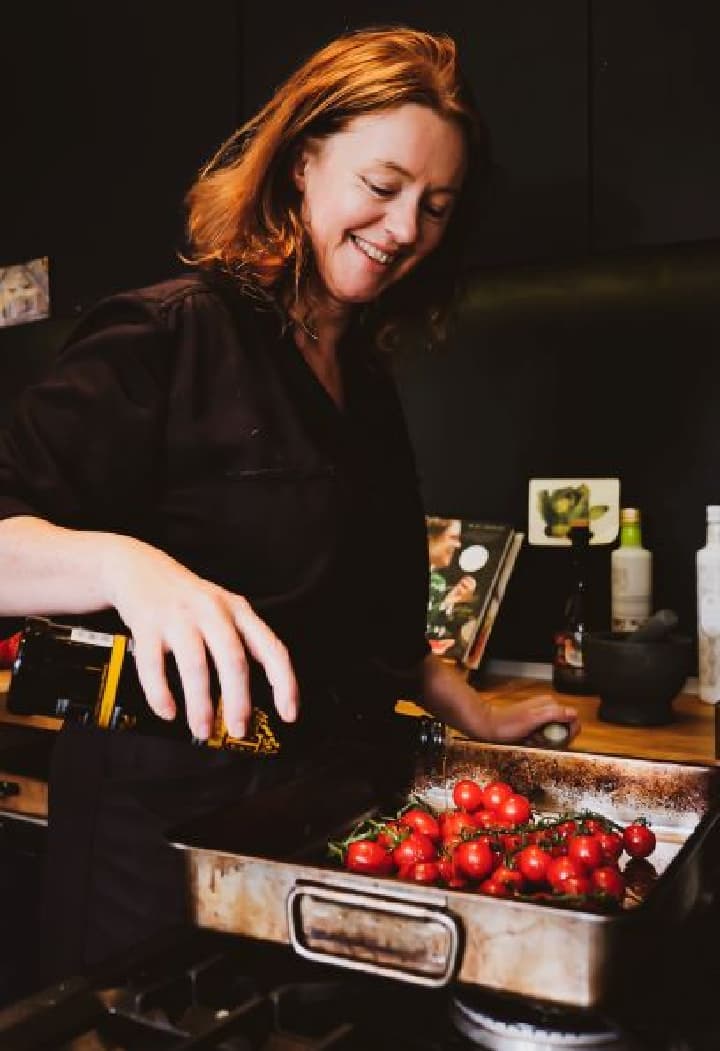
(Photo: Sarah & Olive)
“I’ve worked in the organic sector for years, so sustainability and biodiversity are the cornerstones of how I look at all food production,” she said. “For me, they’re non-negotiable. In this age of mass-produced, generic food, it’s crucial that we support and make space for smaller, more quality-focused olive oil producers because they are the future.”
Merrigan is also a staunch supporter of projects such as Olivares Vivos, believing that the importance of sustainability goes beyond the corresponding improvements in oil quality.
“[Olivares Vivos] is a great project, and I am delighted to see that producers I work with, like Finca la Torre and Dehesa de la Sabina, are part of it,” she said. “In general, I look for producers who take their stewardship of the land seriously, who understand the role they can play in improving it for future generations.”
“At present, we are losing aspects of the natural world that will be impossible to reinstate, and the effects are increasingly catastrophic, and it’s crucial that this informs how we eat and source food,” Merrigan added. “The south of Spain is becoming more and more arid, and protecting the biodiversity and soil health there is imperative.”
From her position at the intersection of producers, suppliers and consumers, Merrigan has seen firsthand the effects of climate change, extreme weather events and disruptions to global supply chains in recent years.
In addition to record olive oil prices at origin, she noted the impact that the soaring costs of transport and materials, such as glass and cork, have had on the industry.
“On the other hand, the public appetite and appreciation for good quality extra virgin olive oil has been growing steadily,” Merrigan said. “There is a better understanding of what extra virgin olive oil is and what goes into making a good one.”
“This can only be a good thing,” she added. “To ensure that properly produced extra virgin olive oil has a future, it’s essential that the work involved is recognized and that producers are paid properly for what they do.”
Merrigan, who completed the Olive Oil Times Sommelier Program in London earlier this year, is dedicated to educating others about the world of olive oil. She hosts tasting events and masterclasses, often in collaboration with chefs and nutritionists, to share insights into olive oil varieties, tasting techniques and culinary applications.
“Because Ireland doesn’t have a native olive oil culture, I feel it’s important to educate people so that they can make informed choices when buying an olive oil rather than be guided by price or label,” Merrigan said.
“From the beginning, I’ve talked a lot about things like the taste of olive oil varietals, the difference between early and later harvest, harvest dates and how to keep your olive oil in good condition,” she added.
“And of course, as a former chef, I love showing people how to use great olive oil to make the simplest ingredients and dishes taste incredible,” Merrigan continued. “Obviously, there are all the health benefits to consider, and I think Irish people are very open to learning about these, as cardiovascular disease is one of the leading causes of death in Ireland.”
That lack of a native olive oil culture in a country famous for the quality of its butter might lead many to wonder whether Irish cooking and the Mediterranean diet are naturally compatible. Merrigan believes that there are far more similarities than one might think, though.
“Ireland is a country that produces incredible produce, and in recent years, there has been a move towards locally-grown seasonal ingredients, and I think olive oil, while not Irish, does a fabulous job at unlocking the potential of fresh Irish produce,” she said.
“A common misconception is that Irish food is stodgy and not very sophisticated. The opposite is true. There is an incredible appreciation for ingredients and provenance, with local seasonal ingredients being celebrated like never before,” Merrigan added.
“Of course, Ireland is also a much more multicultural society than it was 20 or 30 years ago, and this has led to more diversity in the kitchen. As long as ingredients are respected, anything goes,” she concluded.


